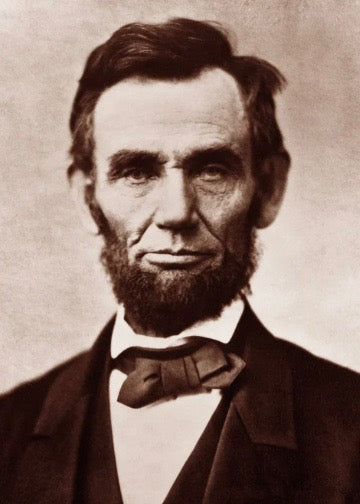
Abraham Lincoln, 16th U.S. President
Share
Abraham Lincoln is one of the most significant figures in American history, known for his leadership during the Civil War and his dedication to preserving the Union. This article provides an overview of Lincoln’s life, political career, and lasting historical impact. By examining his journey, we gain insight into how his principles shaped the United States.
Humble Beginnings
Born 216 years ago today, on February 12, 1809, in a log cabin in Kentucky, Lincoln had humble beginnings with limited formal education. Despite this, he was largely self-taught and became a skilled lawyer in Illinois. Before entering national politics, he served in the Illinois State Legislature and gained recognition for his debates on the abolition of slavery.
Before becoming President, Lincoln was known for his opposition to the expansion of slavery and his commitment to preserving the American Union. His debates with Stephen Douglas in 1858 solidified his reputation as a strong orator and principled leader. In 1860, he was elected as the 16th President of the United States, setting the stage for one of the most challenging periods in American history.

Unifying Leadership
Lincoln faced the immense challenge of leading a divided nation as the Civil War erupted shortly after his election. The secession of Southern states and the outbreak of war threatened the survival of the Union. Throughout his presidency, he navigated military strategy, political opposition, and the moral question of slavery.
To address these challenges, Lincoln issued the Emancipation Proclamation in 1863, which declared enslaved people in Confederate states to be free. He also worked to pass the 13th Amendment, which abolished slavery in the United States. His leadership during the war ensured the Union’s victory and redefined the nation's ideals of freedom and equality.
Lincoln’s life was tragically cut short when he was assassinated by John Wilkes Booth in 1865. Despite his death, his impact on the nation remains profound. Today, he is remembered as a leader who preserved the Union, championed liberty, and set a lasting example of courage and resilience.

Summary
Abraham Lincoln’s leadership kept the United States united during its greatest internal conflict. His policies and speeches played a crucial role in ending slavery and shaping the nation's future. His legacy continues to influence American ideals of equality, democracy, and perseverance.
Lincoln’s presidency demonstrated the power of strong leadership in times of crisis. His unwavering commitment to unity and justice left a lasting mark on the United States, making him one of the most revered presidents in American history.
- Led the nation through the Civil War, preserving the Union.
- Issued the Emancipation Proclamation, taking a significant step toward ending slavery.
- Delivered the Gettysburg Address, redefining the purpose of the war and American democracy.
Discover More
WaveRocket celebrates America’s rich history with insightful articles and bold designs that spark conversation. Discover awesome tee-shirts, and explore more thought-provoking content at WaveRocket posts.
by Roger Culpepper
